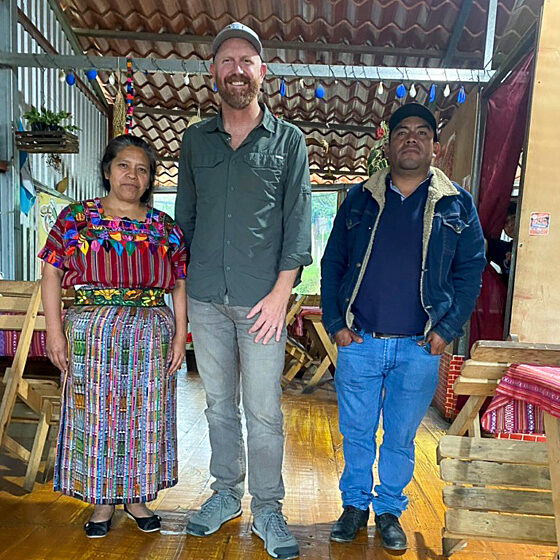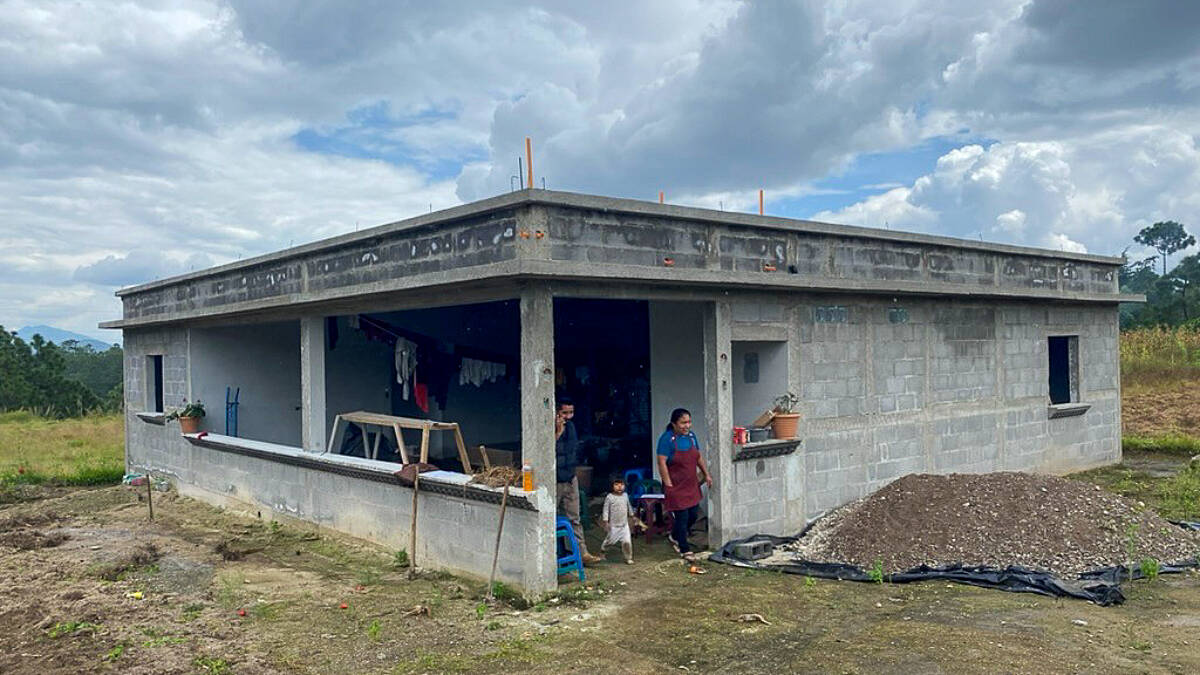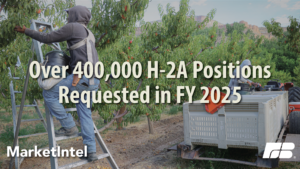H-2A Program Benefits Guest Workers, Alabama Farms
Marlee Jackson
Publications director, Alabama Farmers Federation
Eighteen guest workers arrive at Martin’s Nursery in Mobile County each January to cultivate ornamental plants that will beautify homes across the U.S.
They’re also working to improve life in their native countries.
“They don’t have the opportunities back home that they do here,” said Dillon Turk, whose family owns the nursery in Semmes. “They can work all day back home and make a fraction of what they make here. That’s if they can find a job.”
Alabama Extension’s Beau Brodbeck gets it. His recent research analyzed the impact regular, temporary migration to the U.S. and Canada (like agricultural H-2A or nonagricultural H-2B programs) has on families in Guatemala.
The top reason fueling temporary migration? Improving livelihoods.
That’s according to a staggering 90% of respondents.

photo credit: Alabama Farmers Federation, Used with Permission
Beau Brodbeck, center, is pictured with a family that invested funds into a local pizza shop in Guatemala.
In Guatemala, workers average $5 to $10 a day. In contrast, an eight-hour workday for guest workers in Alabama yields $117.44, due to the federally mandated Adverse Effect Wage Rate (AEWR). Alabama’s current AEWR is $14.68 an hour.
Those funds go far in developing economies like Guatemala.
According to Brodbeck’s research, guest workers send $770 to $1,900 home each month. It’s a key source of income for workers, families, communities and the country — and means H-2A visas can significantly improve short- and long-term livelihoods compared to non-emigrants and irregular (or illegal) migrants.
Examples include improved housing opportunities, better education for the next generation and investments in businesses or farms.
Turk has heard about those investments firsthand. Martin’s Nursery contracts with Mexican and Guatemalan guest workers, one of whom recently finished building his fourth rental house back home. Although he’s in Semmes pruning plants and pulling orders 10 months a year, he’s a landlord, too.

photo credit: Alabama Farmers Federation, Used with Permission
Guest workers are able to improve their livelihoods back home thanks to work in the U.S. That includes investing in their homes, education, farms and other small businesses.
“We direct deposit their paychecks, which streamlines their ability to get money back home to their families,” said Turk, the Alabama Farmers Federation’s State Young Farmers Committee chair. “They’re happy to be home in the winter, but they also say they’re ready to come back here and work.”
Other advantages of regular migration include lower costs, plus decreased travel risks. The average work visa costs about $1,000 and is often paid for by the contracting farm. Irregular migration can cost up to $15,000 and lines the pockets of traffickers. It’s also dangerous, as traffickers duck and dodge mainstream routes into the U.S.
Brodbeck’s research delivers numbers to back up decades of anecdotal information, said Blake Thaxton, a commodity director with the Federation. He works with specialty crop farmers like Turk.
“Our farmers have said for a long time that guest worker programs are mutually beneficial,” Thaxton said. “It’s comforting to know the work these guys do pays off for Alabama farms, families who use their crops and the guest workers who help grow them.”
It’s critical to remember why farmers invest in guest worker programs, too, Turk said.
“Just because most Americans don’t want to take that job doesn’t mean there aren’t people willing to take the job,” he said. “We need the help, and they appreciate the opportunity.”
"H-2A Program Benefits Guest Workers, Alabama Farms" was originally published in the March issue of Alabama Farmers Federation’s monthly magazine, Neighbors. This is the final piece in a four-part series highlighting Alabama’s need for guest workers. Find previous stories at AlfaFarmers.org.




